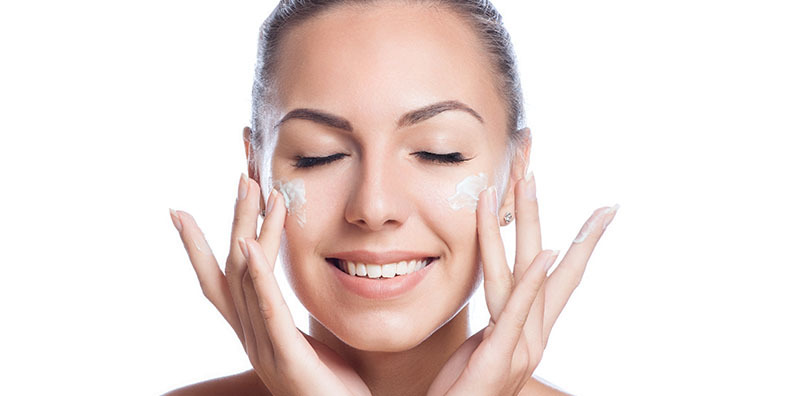Hyaluronic Acid has many great properties in it which help to give various benefits to our body. We have listed seven major benefits of it after deep research and analysis on various factors to get you to know key aspects of it:
1. YOUTHFUL SKIN
Hyaluronic acid treatments can improve the appearance and feel of your skin. Approximately half of your body’s hyaluronic acid is found in your skin, where it links to water to help prevent drying. The natural ageing process, as well as contact with Uv rays from the sun, cigarette smoke, and pollutants, can reduce its levels in the skin.
By providing your body with extra amounts of hyaluronic acid to absorb into the skin, taking hyaluronic acid supplementation may help to avoid this decline. In adults, daily doses of 120–240 mg for at least one month were demonstrated to dramatically enhance skin hydration and minimise dry skin.
To maintain skin to look tight and youthful, several doctors use hyaluronic acid fillers.
2. RAPID HEALING
Hyaluronic acid is also important for wound healing. It’s naturally found in the skin, but its levels rise when there’s damage that needs to be repaired. Hyaluronic acid aids wound healing by reducing inflammation and telling the body to increase the growth of new blood vessels in the injured area.
It has been proven that applying it to skin wounds reduces wound development and discomfort faster than a placebo or no therapy at all. When administered directly to exposed wounds, hyaluronic acid also contains antibacterial characteristics, which can help lower the chance of infection.
3. LUBRICATING JOINTS
Hyaluronic acid can also be present in the joints, where it helps to lubricate the area among your bones. The bones are less prone to rub against one another and create discomfort when the joints are lubricated.
Osteoarthritis, a type of inflammatory joint condition caused by wear and strain on the joints over time, can benefit from hyaluronic acid supplementation. In patients with osteoarthritis, taking 80–200 mg daily for at least two months has been proven to dramatically improve knee pain, especially in those here between the ages of 40 – 70.
4. ACID REFLUX SYMPTOMS
Hyaluronic acid supplementation may help lessen acid reflux symptoms, according to the latest research. Acid reflux is a condition in which the contents of the stomach are rehashed up into the throat, causing damage and pain to the esophageal lining.
Hyaluronic acid may assist to calm the esophageal lining and speed up the healing process.
In one test-tube investigation, adding a mixture of hyaluronic acid and chondroitin sulphate to acid-damaged vocal tissue aided healing significantly faster than when no therapy was applied.
Benefits have also been demonstrated in human trials. According to one study, taking a hyaluronic acid and chondroitin sulphate supplement coupled with acid-reducer reduced reflux symptoms by 60% more than taking the acid-reducer alone.
Second research found that the same substance was five times more efficient than a placebo at decreasing acid reflux problems.
5. COMFORTING DRY EYE
Dry eye symptoms affect about one out of every seven elderly persons due to decreased tear generation or tears vanishing too quickly. Because hyaluronic acid is so good at holding moisture, it’s frequently used to treat dry eyes. Dry eye symptoms and ocular health have been proven to improve with eye drops containing 0.2–0.4 percent hyaluronic acid.
Dry eye contact lenses containing slow-release hyaluronic acid are also being researched as a potential therapy. Hyaluronic acid eye drops are also commonly used to minimise irritation and expedite the healing of wounds during eye surgery.
6. INCREASES BONE STRENGTH
The implications of hyaluronic acid supplementation on bone health are being studied in new animal studies. Hyaluronic acid supplementation was reported to help delay the bone density in rats with osteopenia, a stage of bone loss that precedes osteoporosis, in two trials.
High doses of hyaluronic acid have also been demonstrated in test tubes to boost the activity of osteoblasts, the cells lead to the formation of new bone tissue. While human bone health has yet to be examined, preliminary animal and test-tube research seem promising.
7. PREVENT PAIN IN BLADDERS
About 3–6% of women suffer from interstitial cystitis, often known as uncomfortable bladder syndrome. Stomach pain and discomfort, as well as a powerful and regular urge to urinate, are symptoms of this condition.
While the origins of interstitial cystitis are unknown, when put directly into the bladder using a catheter, hyaluronic acid has been reported to effectively decrease the pain and urine frequency associated with the illness. It’s unknown why hyaluronic acid helps to alleviate these symptoms, but researchers believe it does so by repairing damage to bladder tissue and making it less responsive to discomfort.

